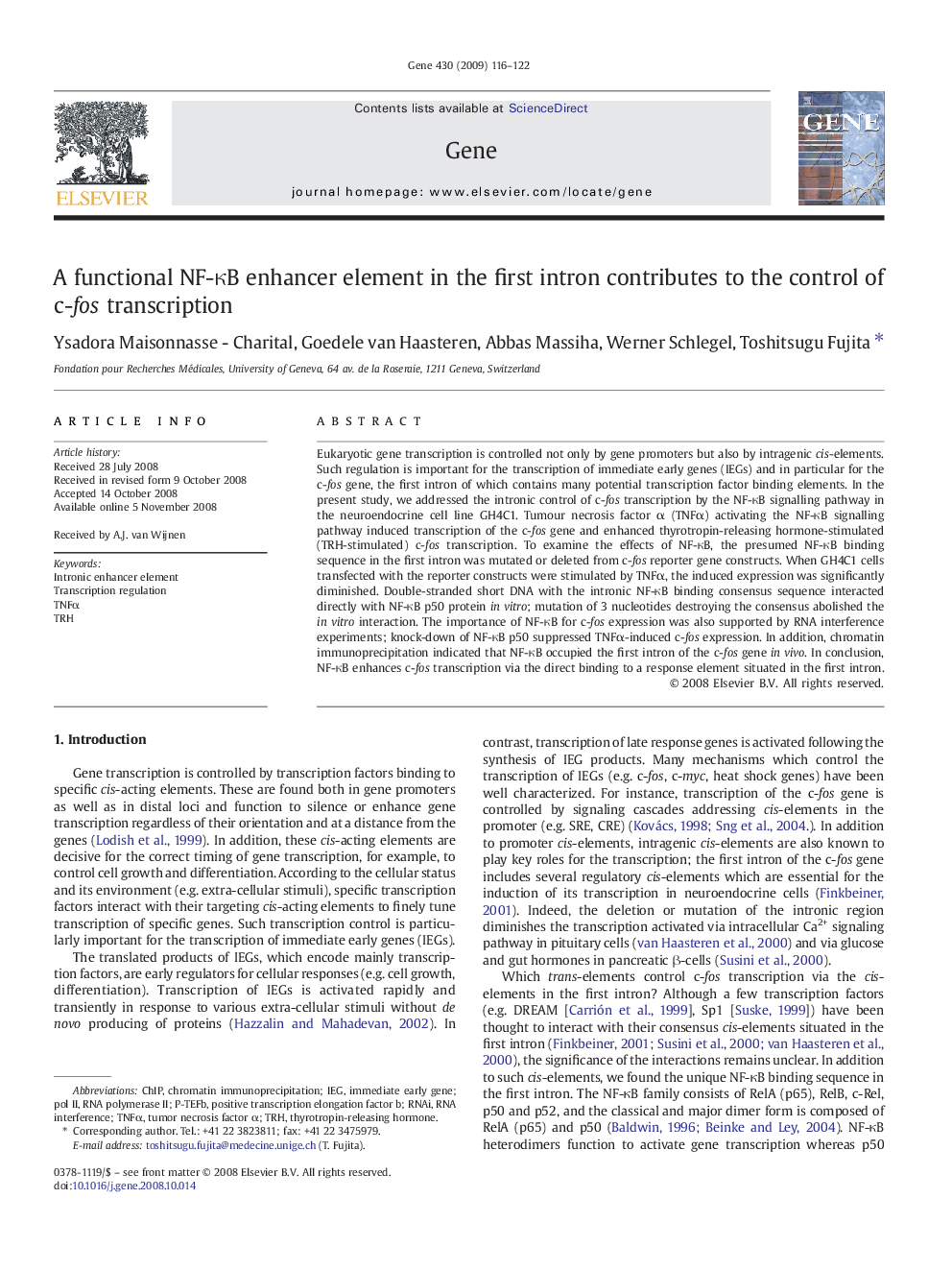| Article ID | Journal | Published Year | Pages | File Type |
|---|---|---|---|---|
| 2818939 | Gene | 2009 | 7 Pages |
Eukaryotic gene transcription is controlled not only by gene promoters but also by intragenic cis-elements. Such regulation is important for the transcription of immediate early genes (IEGs) and in particular for the c-fos gene, the first intron of which contains many potential transcription factor binding elements. In the present study, we addressed the intronic control of c-fos transcription by the NF-κB signalling pathway in the neuroendocrine cell line GH4C1. Tumour necrosis factor α (TNFα) activating the NF-κB signalling pathway induced transcription of the c-fos gene and enhanced thyrotropin-releasing hormone-stimulated (TRH-stimulated) c-fos transcription. To examine the effects of NF-κB, the presumed NF-κB binding sequence in the first intron was mutated or deleted from c-fos reporter gene constructs. When GH4C1 cells transfected with the reporter constructs were stimulated by TNFα, the induced expression was significantly diminished. Double-stranded short DNA with the intronic NF-κB binding consensus sequence interacted directly with NF-κB p50 protein in vitro; mutation of 3 nucleotides destroying the consensus abolished the in vitro interaction. The importance of NF-κB for c-fos expression was also supported by RNA interference experiments; knock-down of NF-κB p50 suppressed TNFα-induced c-fos expression. In addition, chromatin immunoprecipitation indicated that NF-κB occupied the first intron of the c-fos gene in vivo. In conclusion, NF-κB enhances c-fos transcription via the direct binding to a response element situated in the first intron.
